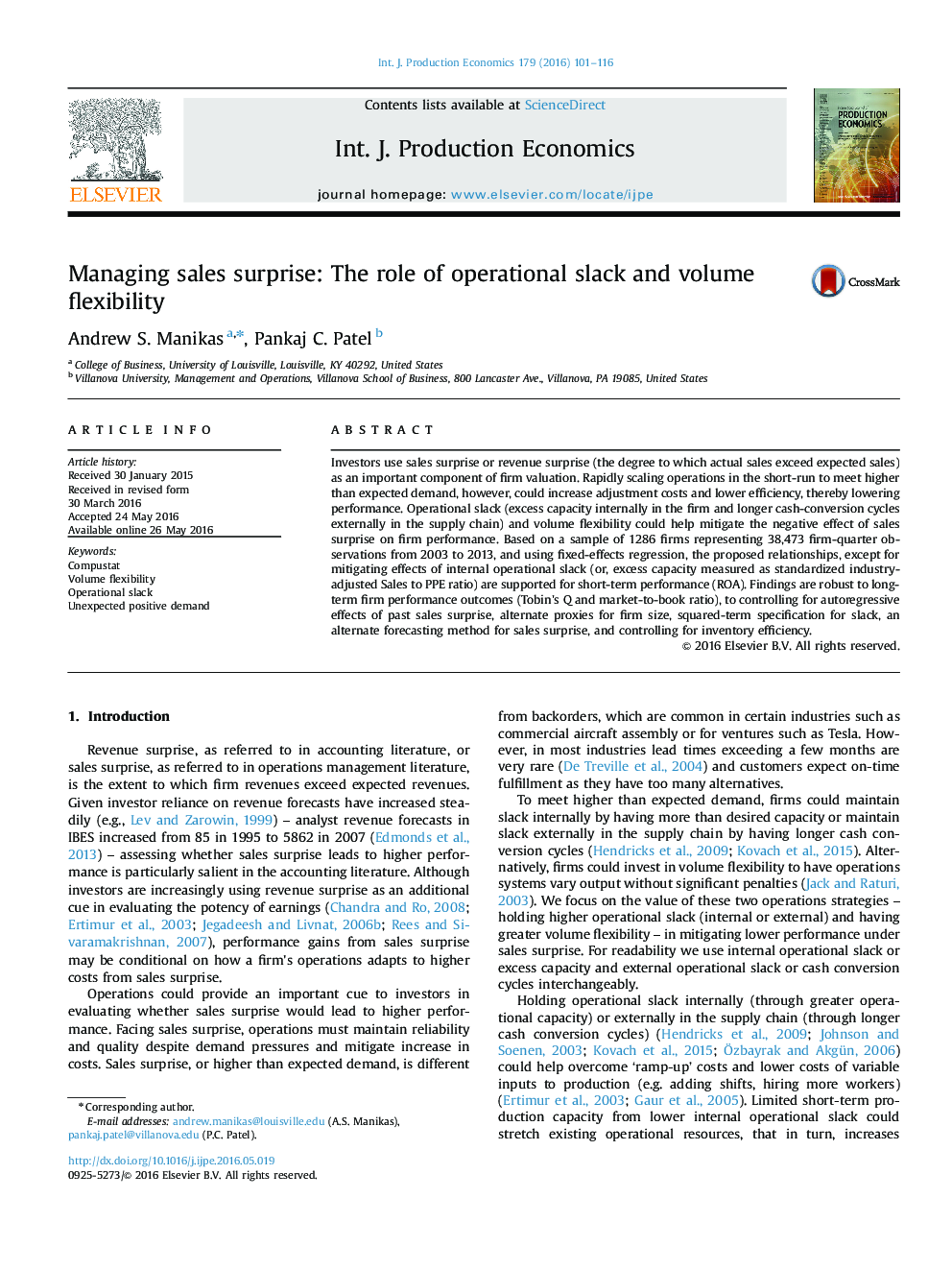| کد مقاله | کد نشریه | سال انتشار | مقاله انگلیسی | نسخه تمام متن |
|---|---|---|---|---|
| 5079258 | 1477528 | 2016 | 16 صفحه PDF | دانلود رایگان |
- Unexpected positive demand (sales surprise) negatively affects return on assets.
- External and internal slack mitigate the decline in performance under higher unexpected positive demand (sales surprise).
- Volume flexibility mitigates the decline in performance under higher unexpected positive demand (sales surprise).
- We use manufacturing firms from Compustat data and fixed-effects regression for our analysis.
Investors use sales surprise or revenue surprise (the degree to which actual sales exceed expected sales) as an important component of firm valuation. Rapidly scaling operations in the short-run to meet higher than expected demand, however, could increase adjustment costs and lower efficiency, thereby lowering performance. Operational slack (excess capacity internally in the firm and longer cash-conversion cycles externally in the supply chain) and volume flexibility could help mitigate the negative effect of sales surprise on firm performance. Based on a sample of 1286 firms representing 38,473 firm-quarter observations from 2003 to 2013, and using fixed-effects regression, the proposed relationships, except for mitigating effects of internal operational slack (or, excess capacity measured as standardized industry-adjusted Sales to PPE ratio) are supported for short-term performance (ROA). Findings are robust to long-term firm performance outcomes (Tobin's Q and market-to-book ratio), to controlling for autoregressive effects of past sales surprise, alternate proxies for firm size, squared-term specification for slack, an alternate forecasting method for sales surprise, and controlling for inventory efficiency.
Journal: International Journal of Production Economics - Volume 179, September 2016, Pages 101-116
